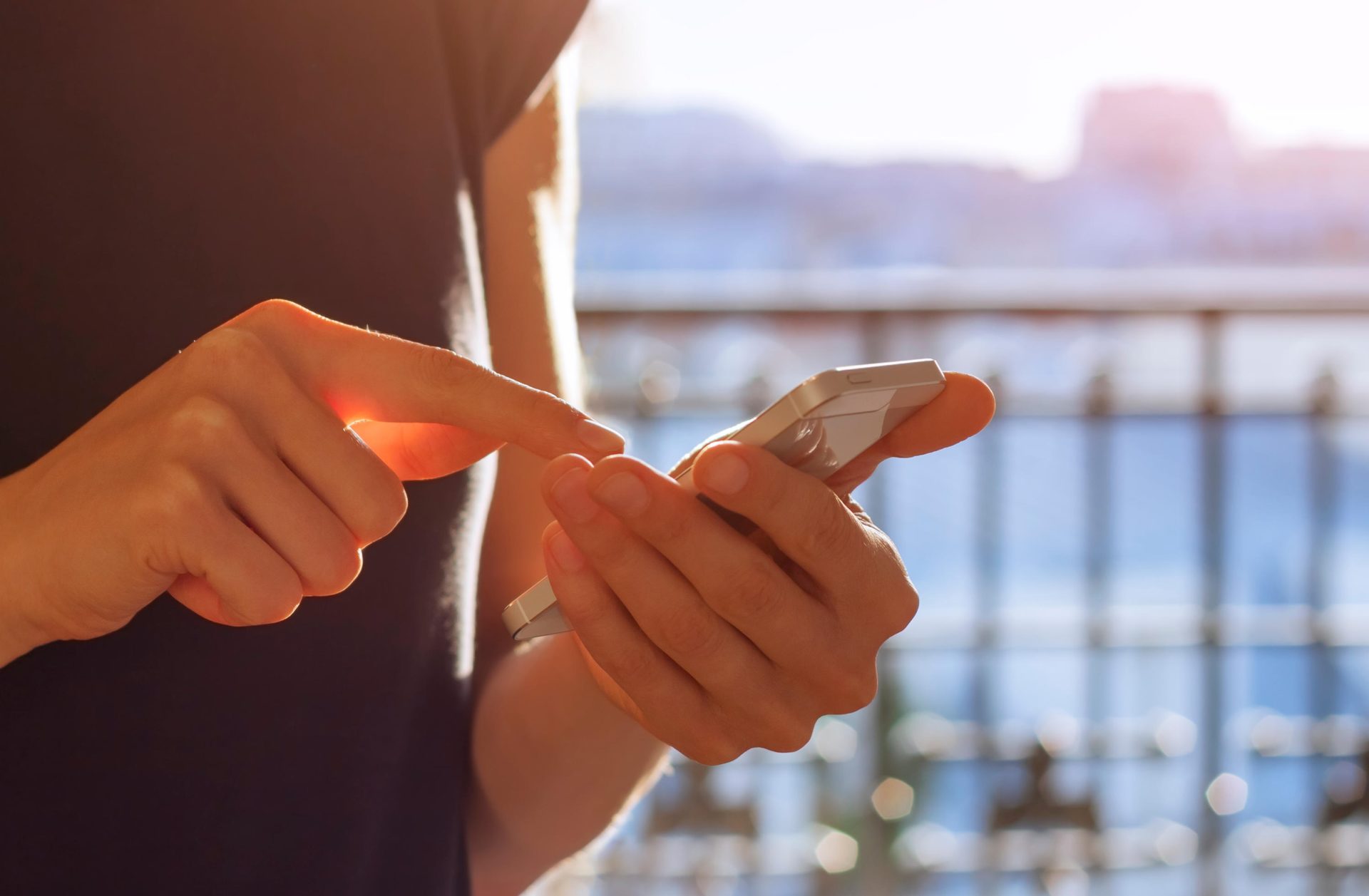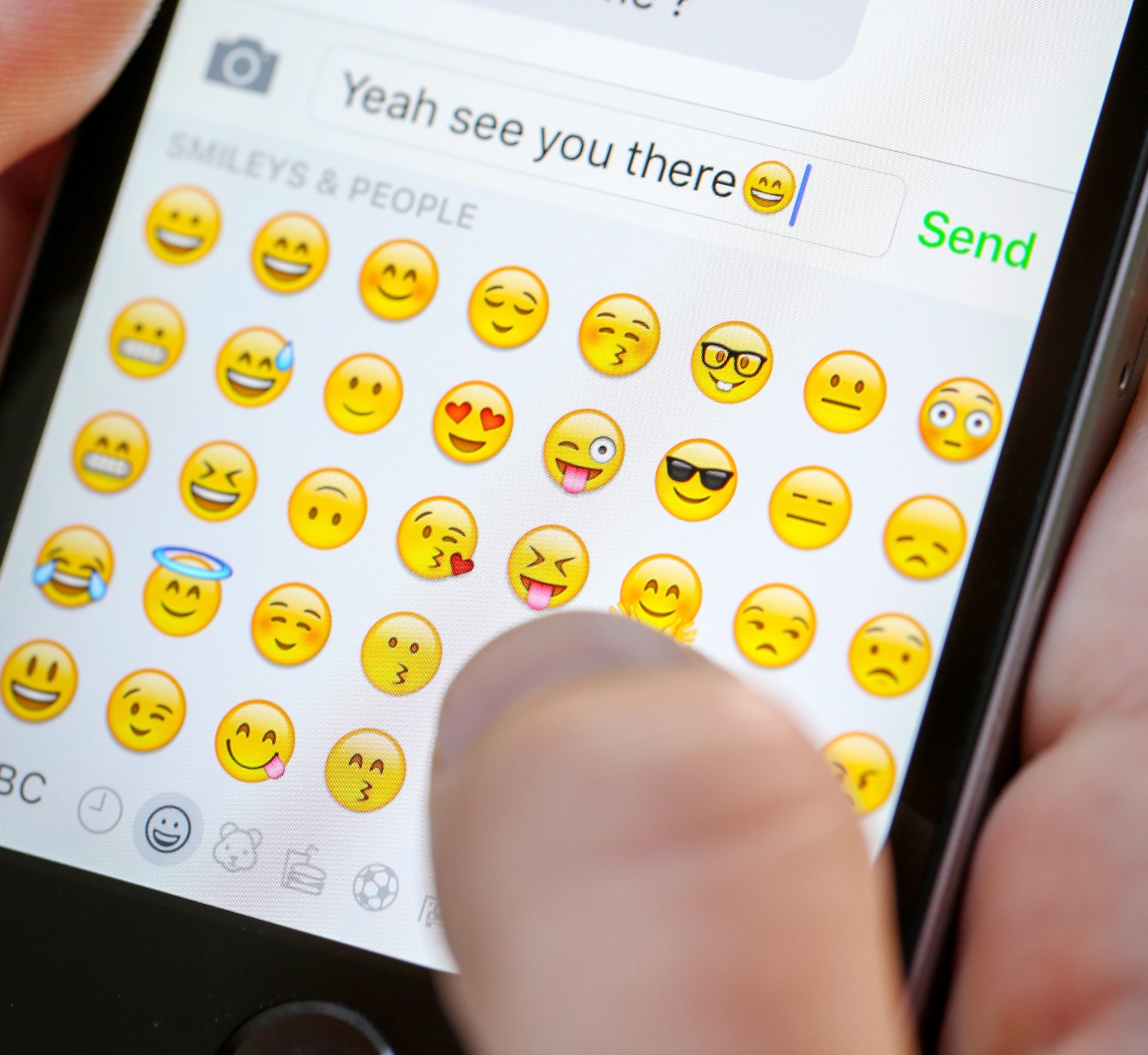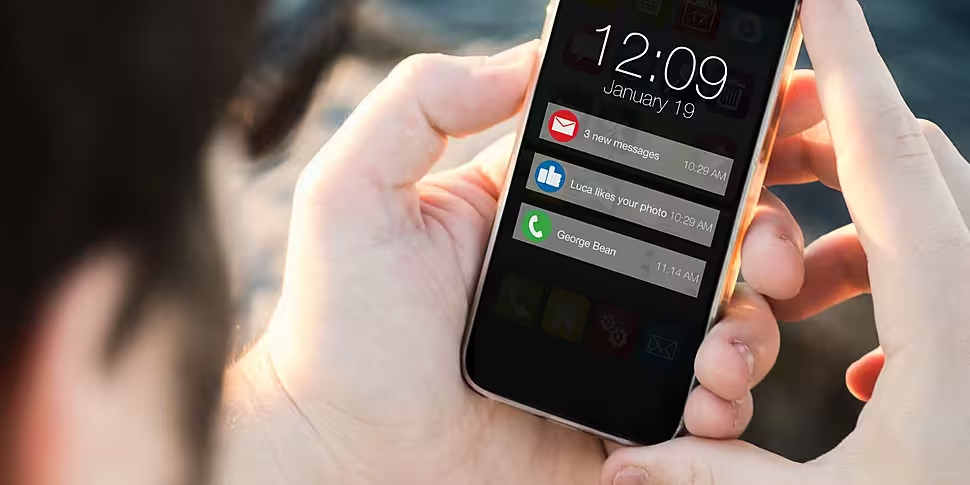People should be turning off notifications, and even turning down the colour, on their smartphones to reduce their usage.
Irish people check their phones on average 50 times a day, a recent Mobile Consumer Survey from Deloitte found.
Women check an average of 54 times a day and men an average of 46 times.
Some 32% said they check their phone within five minutes of waking up, while 4% admitted to checking their phone over 200 times per day.
According to Government data, 77% of all individuals surveyed between 16-74 used a smartphone for private purposes in 2020.
Smartphone usage was lowest with those aged 60-74, with 37% of those surveyed.
Elaine Burke from the For Tech's Sake podcast told Moncrieff people need to turn off notifications.
"I generally don't have notifications on for the majority of apps," she said.
"I have WhatsApp notifications because I use that to communicate with friends and family.
"Everything else I have to log into those apps to find out if there's something there waiting for me.
"That was something I did consciously years ago and it really did transform how I interacted with the phone.
"It's a really simple thing to do: if something is important someone will ring or text you, and everything else is just superfluous idling on the phone".
'They're inventing notifications'
Ms Burke said she found notifications became more persistent.
"They started to just invent notifications - sometimes you get what looks like a notification, and it's just saying, 'People posted things you might have missed it'," she said.
"They've got no real notifications to give you so they engineer them, and that's what these apps are designed to do.
"They're designed to try and take your attention into their platform so they can monetise your eyeballs essentially".
 A woman using a smartphone on July 29th 2015. Image: NicoElNino / Alamy Stock Photo
A woman using a smartphone on July 29th 2015. Image: NicoElNino / Alamy Stock PhotoMs Burke said turning down the colour on your screen can also help.
"Red is a real symbol of urgency, you see a red exclamation mark on an email that's urgent in work," she said.
"We're kind of pre-programmed to think of red as something that you need to action and that's why notification bubbles tend to take that red colouring.
"Lots of cyber-psychology and colour psychology goes into the design of these apps.
"Going into grayscale can kind of take away some of that influence that they have.
"The phone is a shiny toy, it's got all these bells and whistles that attract you.
"Taking away some of that attractive quality can actually make your use a bit more intentional".
Ms Burke said the best approach is to Google how to go into grayscale on your specific phone.
Physical barriers
Ms Burke said features like screen limits are now built into most newer models.
"They are learning from what users are demanding from them as well," she said.
"You see it as well with the privacy side of things: the fact that you can switch off notifications is something that people should definitely take advantage of.
"These tools will be available but they will very, very rarely - if at all - come as default.
"The ecosystem of apps is also what makes phone operators money... so actually having the app-makers happy as well is another side of their business."
 Emojis on a smartphone. Image: Rosemary Roberts / Alamy Stock Photo
Emojis on a smartphone. Image: Rosemary Roberts / Alamy Stock PhotoMs Burke said physical barriers can also be helpful to break habits.
"If you find you're watching TV and you see someone's face, and you go and look him up, and then you're looking up something else - and suddenly you're not even watching the show," she said.
"If you leave your phone somewhere else that's not within arm's reach, you will not pick it up to do that.
"It's something we do idly and automatically, it's not something that you would do intentionally.
"Not having it in the bedroom is really good advice, but I know a lot of people use it as an alarm clock.
"There's different circumstances but if, generally speaking, you're not in need of anyone calling you in the middle of the night don't bring your phone into the bedroom at all," she added.
Ms Burke suggested people should just buy an alarm clock.
Listen back here:









